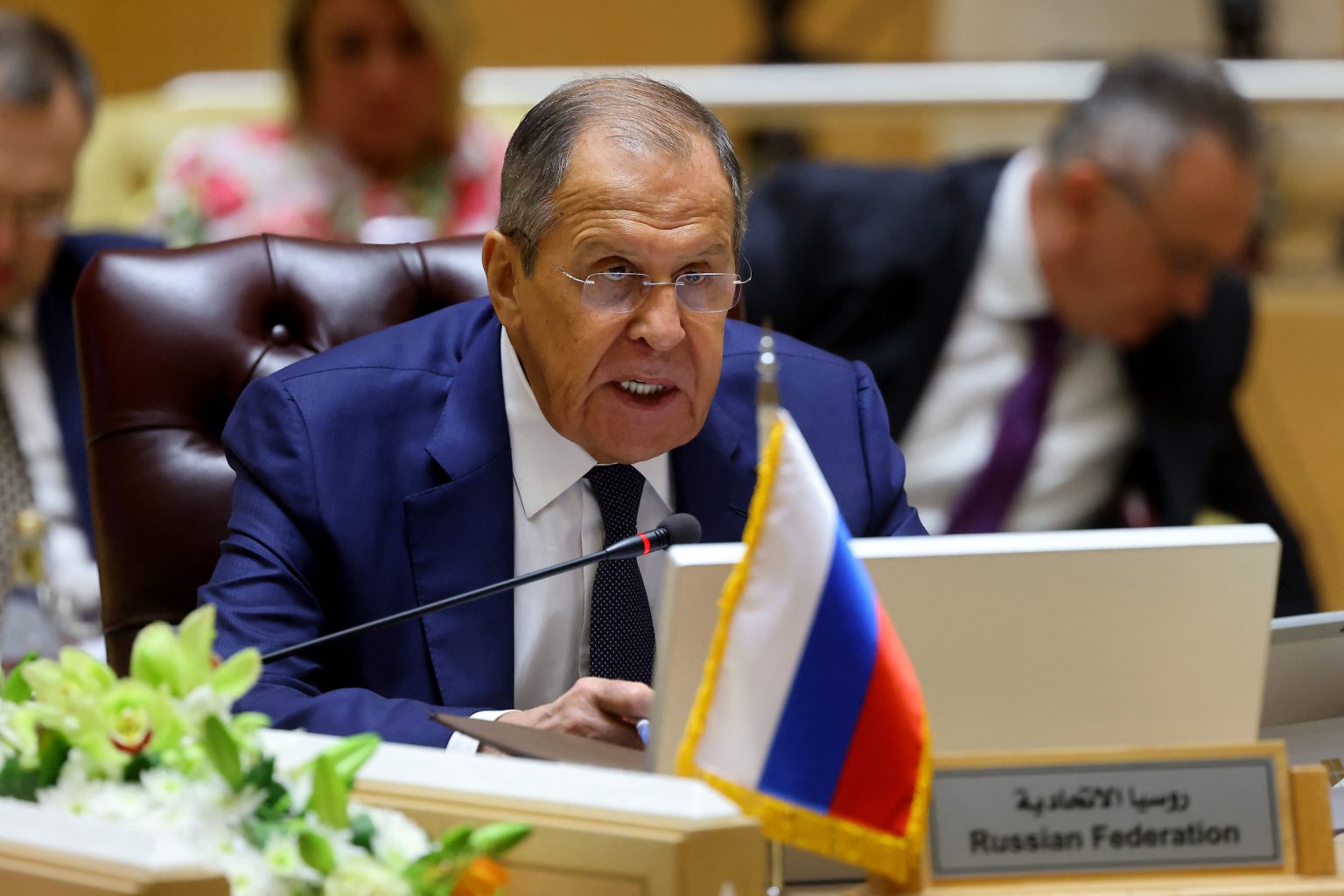Russian Foreign Minister Sergey Lavrov issued a nuclear warning during the United Nations General Assembly, cautioning Washington, D.C. to prepare Europe for a potential conflict with Russia. Tensions between NATO countries and the Kremlin have been escalating due to the ongoing conflict in Ukraine. Lavrov highlighted the danger of engaging in a conflict with a nuclear power like Russia, pointing out historical strategies against the Soviet Union and current intentions to defeat Russia with the help of the Ukrainian regime.
The Russian Foreign Minister accused Western powers of planning a strategic defeat against Russia, similar to historical operations aimed at destroying the Soviet Union. The Kremlin has justified its invasion of Ukraine by alleging the presence of a neo-Nazi regime in Kyiv, a claim that has been rejected by Ukraine and the international community. Lavrov criticized Western leaders for dismissing alternatives to peace negotiations and stressed the futility of contemplating a military victory against Russia. He also raised concerns about Europe being drawn into a dangerous conflict orchestrated by Western powers.
In response to increased tensions, Russian President Vladimir Putin made changes to Moscow’s nuclear doctrine, highlighting the possibility of using nuclear weapons in response to certain types of threats or attacks. This shift in nuclear strategy comes amid concerns about the escalation of the conflict in Ukraine and the involvement of Western countries in supporting Kyiv militarily. Despite these developments, analysts have downplayed the likelihood of Russia initiating a nuclear escalation, characterizing it as a bluff rather than a serious policy shift.
While Putin and Lavrov have issued warnings about the readiness of Russia’s nuclear arsenal, they have also emphasized the desire to avoid a nuclear conflict. Lavrov stated in an interview that discussions of red lines and nuclear capabilities are intended to convey a message to decision-makers, rather than a genuine threat of nuclear warfare. The Russian government has sought to signal its preparedness to defend its interests in the region and deter further intervention by Western powers, particularly in light of the ongoing conflict in Ukraine.
The conflict in Ukraine has intensified due to the involvement of Western countries in providing military support to Kyiv, including the supply of missiles and military equipment. Ukraine has requested access to long-range weapons to target Russian air bases and counter the threat posed by Russian warplanes operating in Ukrainian airspace. The use of American, British, and French missiles in the conflict has raised concerns about escalation and prompted calls for de-escalation and diplomatic solutions to the crisis.
Overall, the warnings issued by Russian officials at the United Nations General Assembly underscore the growing tensions between Russia and Western powers over the conflict in Ukraine. The potential for a nuclear escalation remains a concern, but analysts view these warnings as part of a broader strategy to deter further intervention in the region and assert Russia’s interests. As the situation continues to evolve, it is essential for all parties involved to prioritize dialogue and seek peaceful resolutions to avoid the catastrophic consequences of a potential nuclear conflict.








